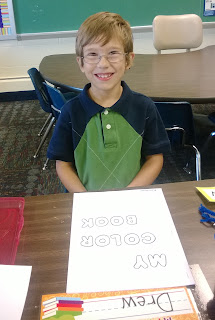A call for discretion, respect, and neighborly love in adoption.
Everyone loves a good adoption story. They are happy-ending stories, filled with drama and struggle and redemption, not to mention chubby-cheeked children. Perhaps you have seen one of them in your newsfeed recently—amazing stories endlessly shared and beautiful to read.
My children have stories like these, too, but I'm not going to tell them.
In the
New York Times last month, Peter Mercurio wrote
"We Found Our Son in the Subway" about how he and his partner (two men, but that's another issue) found a baby abandoned in a subway station and later adopted him. Mercurio writes that his son Kevin, "who had been left on the ground in a corner behind the turnstiles, was light-brown skinned and quiet, probably about a day old, wrapped in an oversize black sweatshirt."
Behind that single sentence is a world of pain and sin and confusion. For readers, this sentence merely inspires the headline that makes a good bedtime story.
Jezebel blogger
Laura Beck said we should read Mercurio's piece: "so we can all hold each other and cry about how sometimes the world is wonderful." But for the boy Kevin, being found in the subway means that there was a man and a woman, his biological parents, who each believed that the thing they should do was to abandon him.
I'm not sure any child is ready to process that himself, let alone have the world re-tweeting it.
Also recently, journalist and photographer Callie Mitchell documented her pregnancy, delivery, and decision to place her son Leo for adoption.
Her story, written as journal entries, appeared in a special edition of
The Daily Iowan, and reveals heart-breaking turmoil and indecision. Mitchell's Aug. 2 entry, when she was five months pregnant, reads: "I told him [Leo's birthfather] I wanted to keep our baby. We fought. I then promised him I'd put our baby up for adoption. I just want this constant fighting to end."
Baby Leo is now three months old. He is unaware of the struggle for his life and well-being that happened before his birth, but someday he will read those words. And he will have to confront the fact that thousands of other people have already read them.
In this digital age, information lasts forever, and adoptive parents are increasingly, permanently, and publicly telling stories that are not theirs to tell.
Why? Partly, I suppose we tell them because people ask. Even mere acquaintances frequently ask me questions about my children's place of birth, their health prior to adoption, and the financial status of their birthparents. Constantly deflecting nosiness takes more energy than many parents have.
And, maybe we tell our children's stories because we believe strongly in
the cause of adoption and want to promote it to others. Maybe, selfishly, we tell them because we adoptive parents are the heroes of those stories. Or because we believe that
our child's identity can be found in his experiences, rather than in his union with Christ.
But maybe we just haven't thought much about it. One mom told me, "I wish someone had told me [at the beginning] to keep every last detail quiet. . . I feel that there are a lot of people who know that [my daughter] was abandoned, and I wish that I had not even shared."
I think the thoughtless telling of our children's stories stems from forgetting something that all parents are prone to forget: my child is my neighbor. Yes, I am his parent—with all the authority and responsibility that entails. Of course. But my child is not simply my possession or an extension of myself. He is a human being, made in the image of God, with a soul that will never die. And his story does not belong to me.
In Luke 10:29, a lawyer approaches Jesus "desiring to justify himself" and asks, "And who is my neighbor?" Jesus' response, the parable of the good Samaritan, makes it clear that we can't exempt ourselves from being someone's neighbor. Everybody is my neighbor. Even the child in my home. Learning to view my child as my neighbor means that I look out for his interests (Phil. 2:4). That I must love him as I love myself (Matt. 22:39). That I must treat him as I would want to be treated (Matt.7:12).
What's good for me as a parent—what generates pageviews or makes casual acquaintances happy—is not always what's good for my child. Instead, loving my child means keeping his stories quiet until he can decide what to do with them.
Sarah is an adoptee who, as an adult, has been a caseworker for children in the foster care system. Reflecting on times in her own childhood when people would ask questions about her adoption, she remembers "feeling a little violated. I think the feeling of being violated was that I never saw being adopted as a big deal. I look back, and I always felt part of the family, always accepted, and always loved. I was never treated differently, so why bring up my adoption?"
Most of us want to be known as individuals with unique, God-given abilities and interests, rather than people who are defined solely by what tragedy has happened to them in the past. I think my child will want to be the kid who can make people smile, or who can hit a Little League homerun, or who can draw masterpieces with crayons. And, as his neighbor, it's my job to let people see him that way. Kevin Mercurio, on the other hand, may spend the rest of his life as "that boy who was left in the subway." To me, that's not a neighborly thing to say.






